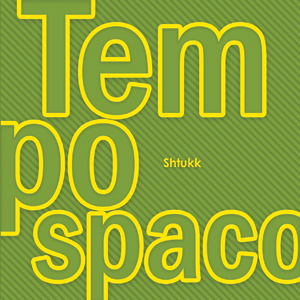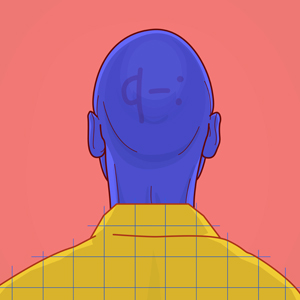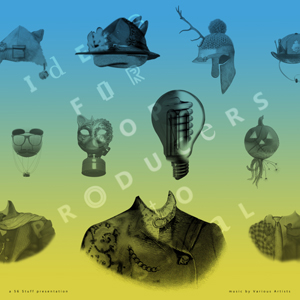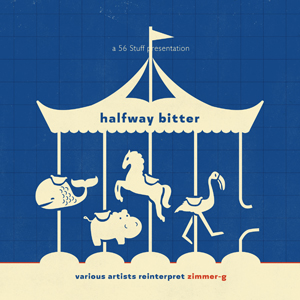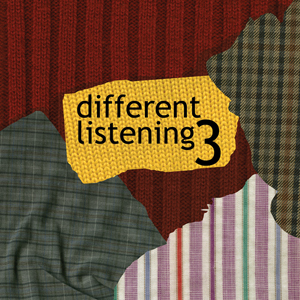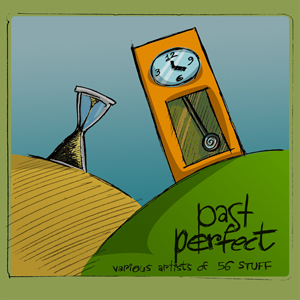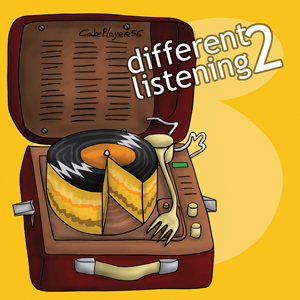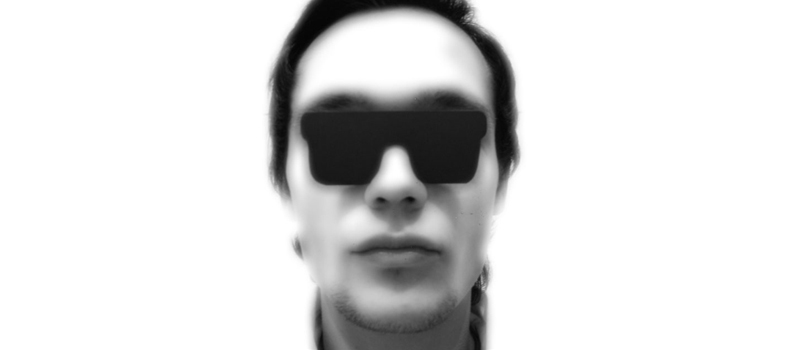
Also known as
Also known as
It may be surely said that Shtukk imbibed music with mother’s milk — she’s a composer, and Denis studied at a music school with piano classes for three years in his childhood. As he says, his head is like a big mixing table with unlimited memory capacity, so compositions get stored there for a long time and with all the details.
In 1999 Denis got a compact cassette with Mr.Oizo’s “Analog Worms Attack” and he played it days and nights. A computer appeared at the same time, and Shtukk discovered a process which made him feel terrific: he was able to create sounds, manipulate them, mix and modify. That’s how music composing appeared in his life.
At the beginning, music (with broken, but not fast, beat, noise and experiments with effects) was composed rather to be stored, than played. The author was an inexperienced user and it caused regular music loss with HDD formatting. However, he never regretted that, because all the tracks lived inside his head, and the artistic potential was accumulated. Denis made tracks, recorded them on cassettes and CDs and presented to friends, who often had only one copy of this records left. That was real hand-made stuff, with unique artwork (and it is still practiced): Shtukk made collages from the pages of magazines and passed them through a copier.
In 2000, while being at his grandmother’s in Borovichi town, Denis ran into Polivox in a second-hand store. Polivox could work properly and Shtukk hurried to buy it for a price of 250 rubles. As a result, a specific analog bass and other retro-soviet sounds appeared in his compositions. He liked analog sound and tried to make it using software. That time Denis realized what the “cheap” sounds were. The ones he wanted to reject immediately.
There was no goal in creation, there was only the desire to emit sounds, and music was amorphous. Now it tends to be solid, and the tendency becomes an aim itself.
After a while, Denis got aquainted with two young enthusiasts: one of them made a radio translator, and another with its help began an underground radio broadcasting. The broadcasting radius covered Pushkin, Pavlovsk and the south of St. Petersburg. Trance, techno and various DJ-mixes were on the air. In the evenings they were receiving calls from their listeners, and they were completely different people varying from excited schoolboys (“Wo-o-ow!”) to aged serious sceptics (“How can you call this music?”). Shtukk started making special music mixes (ambient, noise, clicks'n'cuts) with duration of 60–90 minutes for this pirate station and included tracks by Plastikman, Aphex Twin and his own ones as well. This work has an emotional basis — Denis was mostly worried about the emotional affinity of compositions, and not about the mixing techinique. Each mix was thematic, had an unique title and a lead-in, with strongly deformed Denis’s voice in the begining. He produced for about 5–6 such projects at all, after that he moved on to a work at a dance club.
Work in a club helped him to feel what “The Big Sound” is and to understand the principles of manipulating it. Denis rented a needed equipment and founded a chill-out zone where he played music and experimented with the BrainWave Generator program. Generating the waves according to the tracks he played he managed to create an atmosphere which could immerse visitors into absolutely different states. Sometimes after working a session out Denis ran to a store to buy some food and then back to the club to play around with the hardware and turntable.
To try himself out as a promoter he organized a number of beach parties, where he tried to put incompatible things together and to break away from the tendencies. The last of these actions was gentle, quiet, pacific, rainy and dedicated to braindance.
Later on the IQ place was launched, and Denis became its art-director. He managed to attract visitors with unique creative atmosphere and intellectual direction of the music policy. The club’s opening gathered lots of interested listeners, and there was Booka Dehuk, KLUtCh, Jeune homme and Yellowhead among the ones who played. Some weeks later the musical rules of the place were changed, and Shtukk went deeper underground.
Without releasing anything and keeping on deleting his tunes from time to time, he played at two “Experience” festivals, visited Novgorod with a tour and played at Kazantip fest. In the spring of 2004, together with Edd Kumpel, he created an expressive mix “Black out”, in which they compiled and re-worked quite different musical compostitions. In a style, which he describes as “post analog funk”, Denis prepared a show “Do Androids Dream of Electric Sheep?” (the title, as you have already noticed, was borrowed from Philip Dick).
Cooperation with 56 Stuff started with a track entitled “Joop Piedo” which was created before a voyage to Kazantip during one night from a strange material (including a record of live drums and the samples from kid vinyl about a lion, who was dreaming of jungles). The title appeared accidentally: after cleaning the keyboard the buttons were bogged up and Denis, was typing something else, but he saw exactly this phrase on the monitor. Later he recognized that word “piedo” exists in Esperanto, and “joop” is an existing abbreviation.
Next phase was a collaboration with Funka (“Different Listening 2” compilation was released at the same time). On a base of Funka’s emotions he formed accomplished works of music art. Somewhile, Shtukk tried to experiment with a drum-machine, but wasn’t impressed with it. So, he started a cooperative with a drummer — it allowed to base tracks on live drum sets. In an intention to add more “liveliness” to his sound Denis came back to a piano, that had a significant meaning in his music.
Time to time Denis works with people who are able to inspire him or to show some technical skills However, Shtukk remains a loner. The loony loner.
Listen more: the album
Tempo Spaco
Tender melodies for those who appreciate peaceful contemplation and can find enough time for it in time-table scheduled days.
Listen even more: collaborations and compilations
Reverse Yellowheadding
The joy of bending originals into something new and different — captured as music recordings of various dispositions and attitudes.
Indifferent Listening
A conceptual collective album which reflects on contemporary habits of music perceiving and winks at its own predecessors.
Ideas for Pop Producers to Steal
Our favorite type of music is the thought-provoking one. We are not saying this is relevant here, but… Oh, wait. It looks like we are.
Halfway Bitter
A collective effort in rethinking the music by Zimmer-G resulting in engaging selection of music tracks.
Music Take-Away
A compilation created for the same-named event series, where it was available for free. You can also download it for free right now, yes.
Different Listening 3
Summarizing the approach of the whole series: it’s pleasant to the ears, but at the same time it can be surprising for the mind.
Past Perfect
Ten selected tracks from everything published by 56 Stuff from 2002 to 2004. By the way, available for free.
Different Listening 2
A compilation of light electronic music that tries to be more than just a compilation of light electronic music.
Also known as
Denis Davidov
